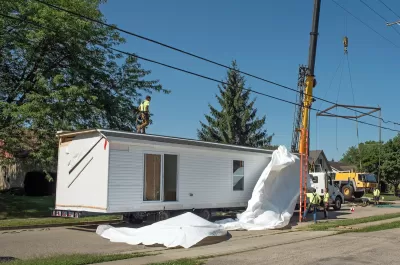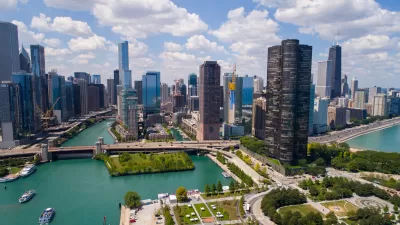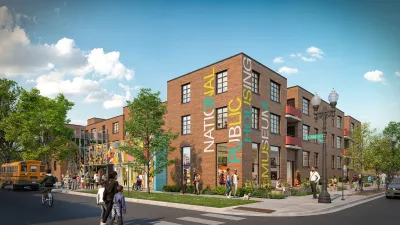Cheaper and faster to construct, modular homes provide an affordable alternative to traditional new construction for low- and moderate-income residents on Chicago’s South Side.

In November, the first of dozens of planned modular homes was constructed on a vacant lot in Roseland, a South Side neighborhood in Chicago. The project is part of the Reclaiming Communities initiative, which aims to revitalize the South Side by building 1,000 affordable homes, writes Emily Soto of local news organization WTTW.
Modular homes, which are built in segments elsewhere and then transported and assembled on site, are more affordable and faster to build than traditional new construction, though many local jurisdictions in the U.S. restrict or outright ban them.
Geoff Smith, executive director of the Institute for Housing Studies at DePaul University, told WTTW, modular homes are an innovative approach to generating homeownership for moderate- to low-income families.
“One of the key challenges that many historically disinvested communities face is a limited supply of move-in ready housing that’s also affordable for modest-income residents,” he said. He continued on to say, “[M]odular housing takes advantage of the sort of abundance of vacant lots and also creates a home that may be more affordable than other types of new construction.”
For Shenita Muse, executive director of the Hope Center Foundation, one of the organizations behind this initiative, told WTTW, “It is really about reclaiming our communities, revitalizing the city of Chicago … There are a number of residents that have been lost. Over 60,000 residents have moved out of the Far South Side, and so if we are to reclaim our communities and our neighborhoods, then we need to build homes.”
FULL STORY: Roseland Initiative Works to Promote Homeownership, Revitalize Communities Using Modular Homes

Planetizen Federal Action Tracker
A weekly monitor of how Trump’s orders and actions are impacting planners and planning in America.

Map: Where Senate Republicans Want to Sell Your Public Lands
For public land advocates, the Senate Republicans’ proposal to sell millions of acres of public land in the West is “the biggest fight of their careers.”

Restaurant Patios Were a Pandemic Win — Why Were They so Hard to Keep?
Social distancing requirements and changes in travel patterns prompted cities to pilot new uses for street and sidewalk space. Then it got complicated.

California Homeless Arrests, Citations Spike After Ruling
An investigation reveals that anti-homeless actions increased up to 500% after Grants Pass v. Johnson — even in cities claiming no policy change.

Albuquerque Route 66 Motels Become Affordable Housing
A $4 million city fund is incentivizing developers to breathe new life into derelict midcentury motels.

DC Area County Eliminates Bus Fares
Montgomery County joins a growing trend of making transit free.
Urban Design for Planners 1: Software Tools
This six-course series explores essential urban design concepts using open source software and equips planners with the tools they need to participate fully in the urban design process.
Planning for Universal Design
Learn the tools for implementing Universal Design in planning regulations.
Heyer Gruel & Associates PA
JM Goldson LLC
Custer County Colorado
City of Camden Redevelopment Agency
City of Astoria
Transportation Research & Education Center (TREC) at Portland State University
Camden Redevelopment Agency
City of Claremont
Municipality of Princeton (NJ)





























